
Imagine your online store during the busiest season. Orders are coming in rapidly, and you’re surrounded by packages and shipping labels. Each moment spent on logistics is a moment not spent growing your business. This is when you realize the need for a little help from a reputable fulfillment service. In the competitive world of ecommerce, selecting the right fulfillment service is crucial. It’s like choosing a long-term partner – the right choice can lead to growth and success.
Picture a service that efficiently takes over your shipping process, allowing you to focus on expanding your business. This blog post is your step-by-step guide to finding that perfect service. We’ll explore how to ensure your products are handled with care and how to choose a service that helps your business thrive.
Jump right in: Fulfillment Status: What Does it Mean?
Understanding Fulfillment Services
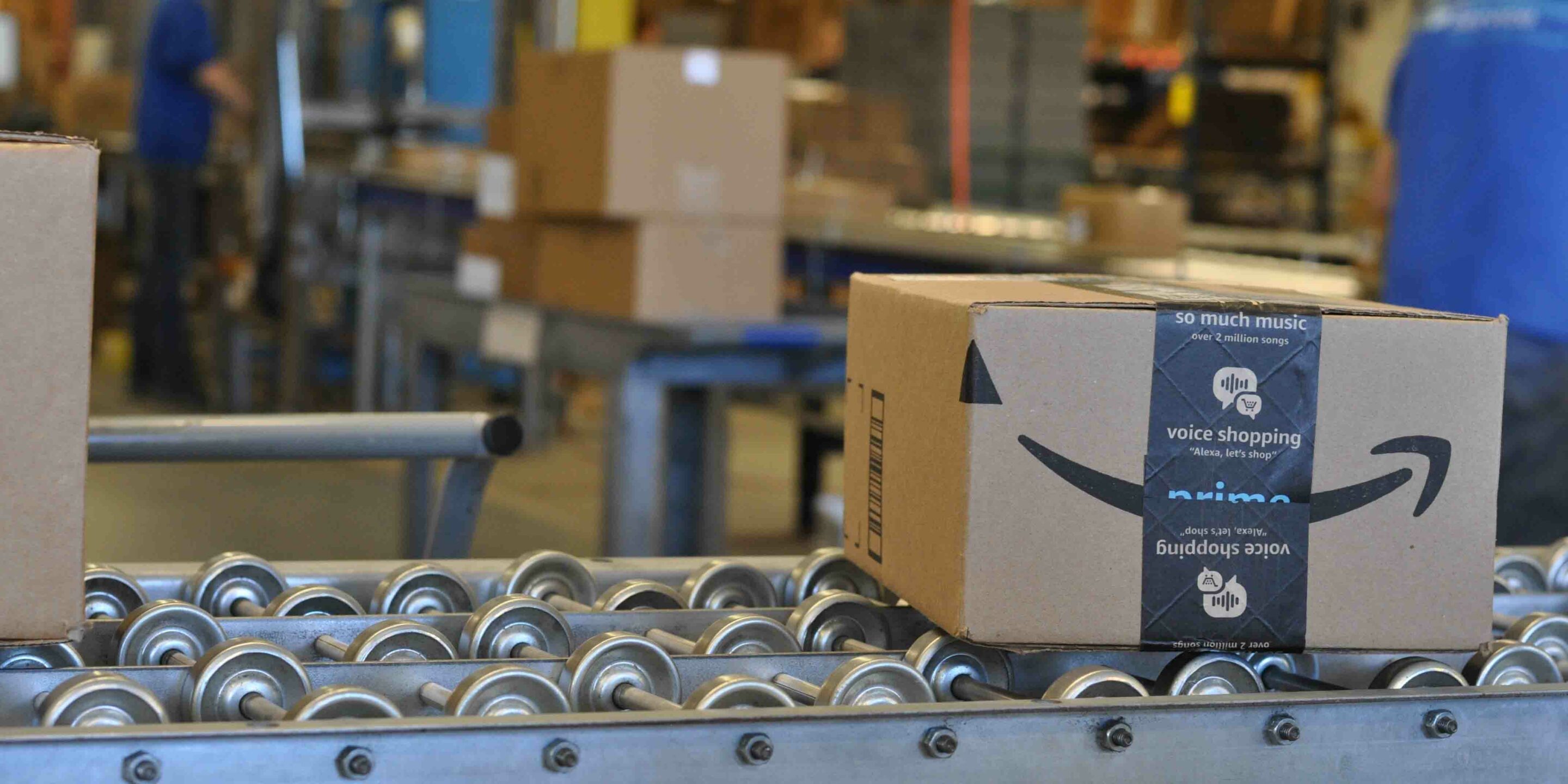
Fulfillment Services are very important in making sure your customers are happy and that your business runs smoothly. Let’s take a closer look at what fulfillment services are and the different types you might consider for your business.
What are Fulfillment Services?
At its core, fulfillment services refer to the process of preparing and delivering a customer’s order. Think of it as the journey your product takes from warehouse shelf to the customer’s doorstep. It encompasses several key steps: storing inventory, picking and packing orders, shipping, handling returns, and managing inventory. Essentially, fulfillment services are the backbone of your e-commerce operations, ensuring that your products are delivered swiftly and accurately to your eager customers.
Types of Fulfillment Services
Understanding the types of fulfillment services is crucial in choosing the right partner for your business. Let’s explore the primary models:
In-House Fulfillment
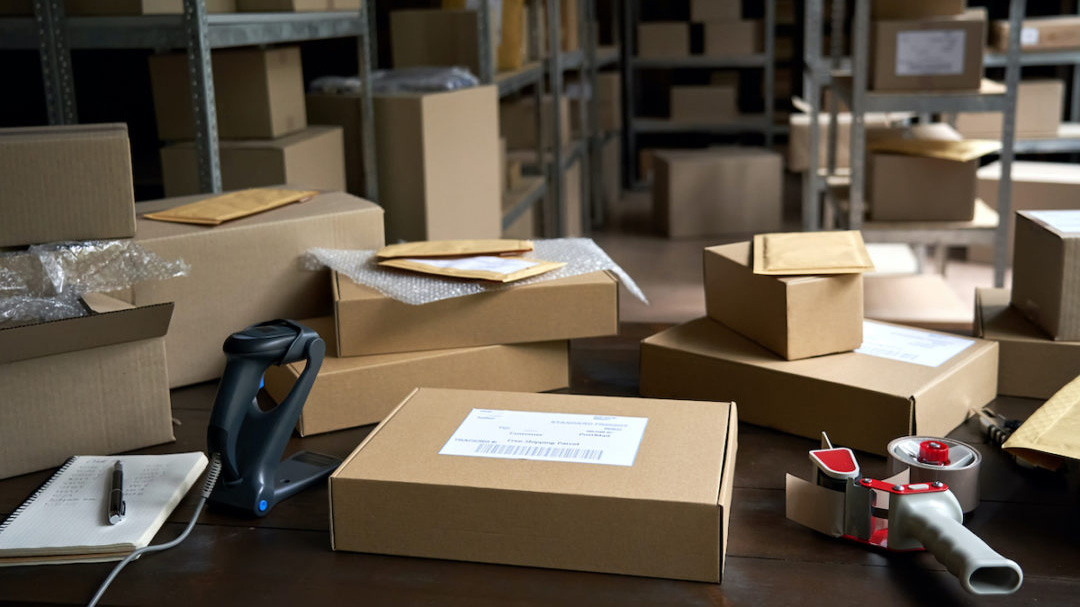
- Description: Also known as self-fulfillment, this is when you, as the business owner, handle all aspects of fulfillment internally.
- Pros: Complete control over the packing process, personalization, and inventory management.
- Cons: Can be time-consuming and less cost-effective as you scale up.
Third-Party Logistics (3PL)
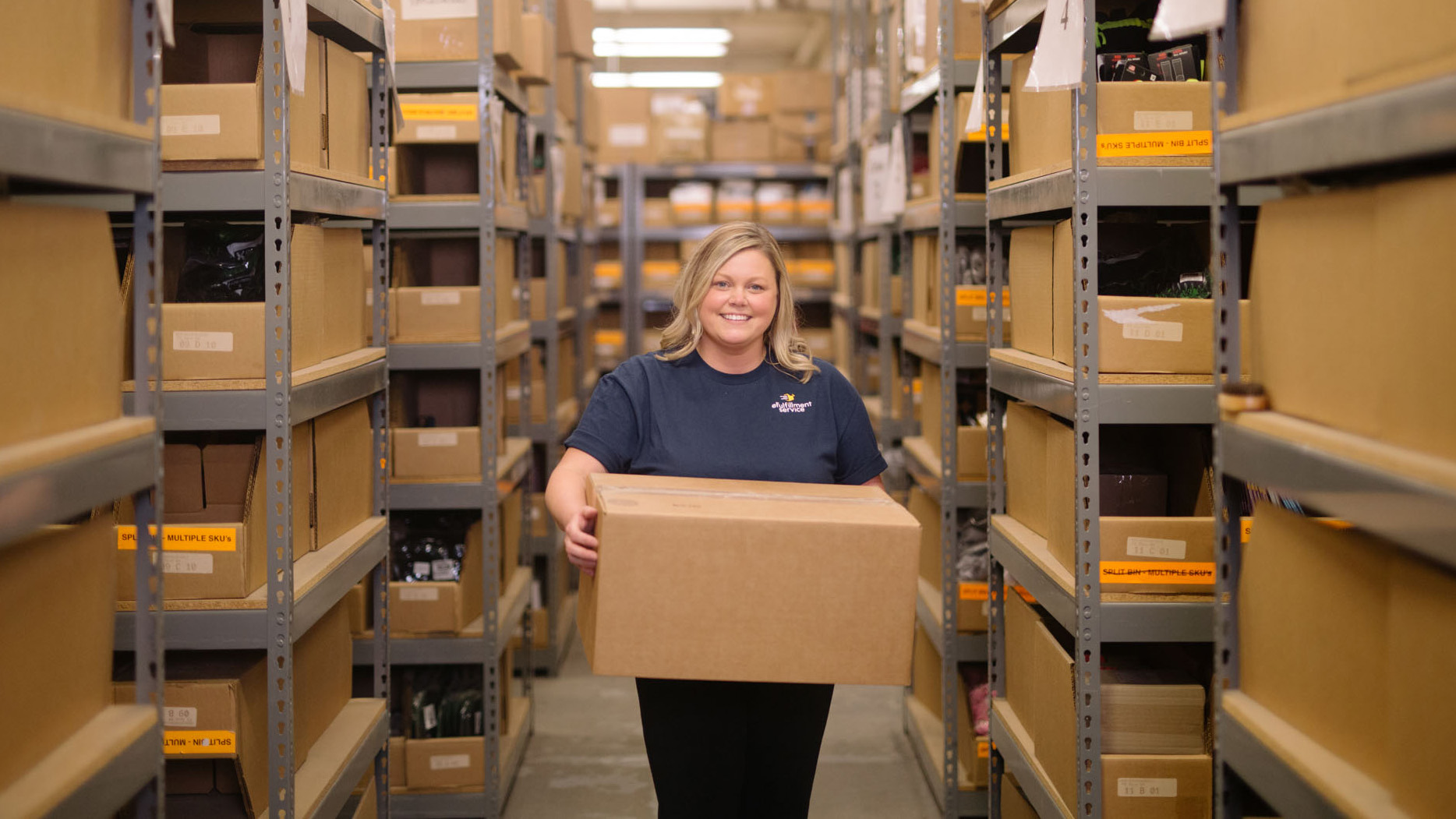
- Description: Outsourcing fulfillment to a third-party provider who takes care of storage, picking, packing, and shipping.
- Pros: Expertise in logistics, scalability, and often more cost-effective as you grow.
- Cons: Potential for service issues if not partnered with a reliable provider.
Drop-Shipping
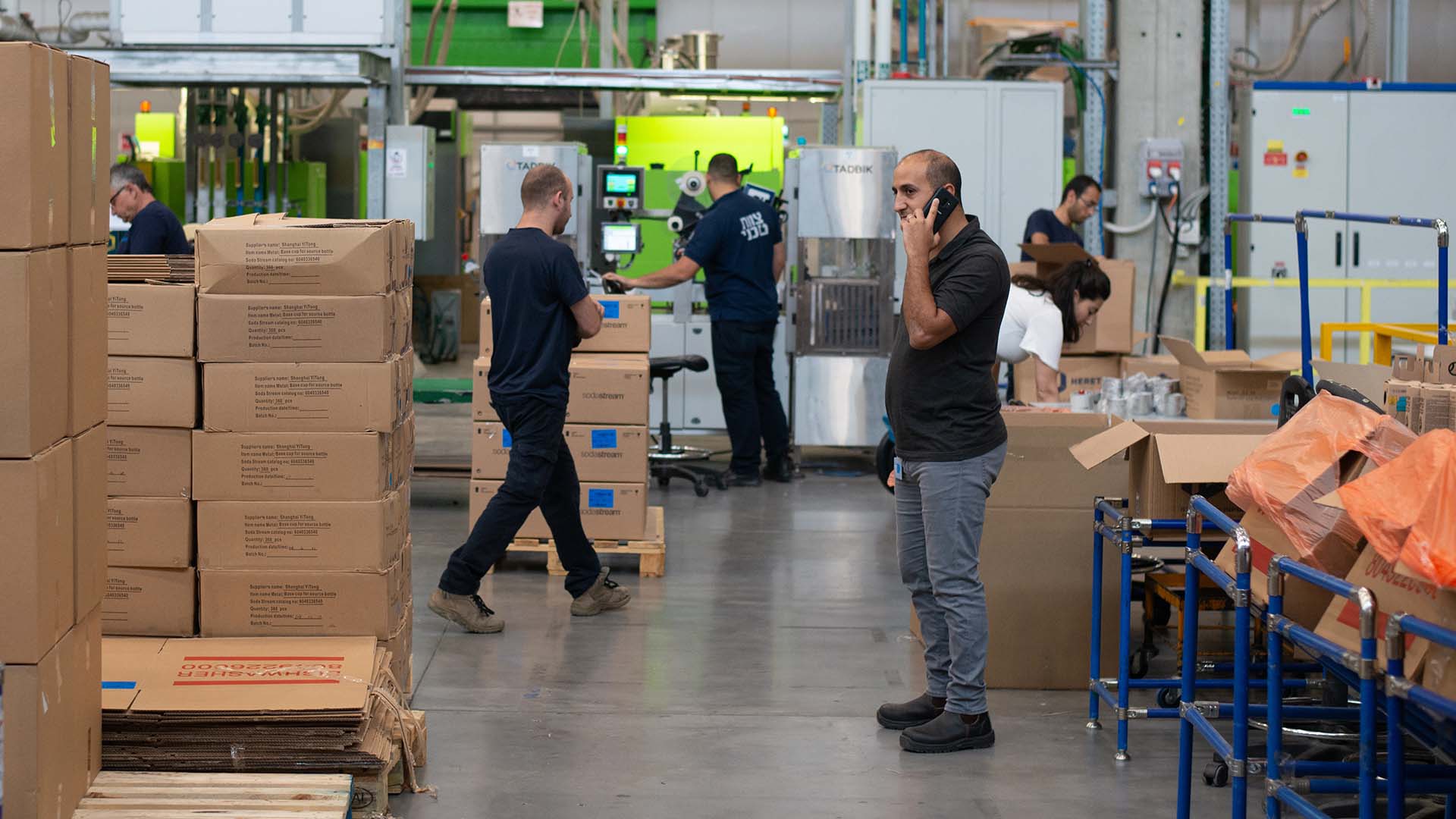
- Description: With drop-shipping the manufacturer or wholesaler takes care of shipping products directly to the customer. You don’t hold any inventory.
- Pros: No need to manage inventory.
- Cons: Less control over shipping speed and packaging branding.
On-Demand Warehousing
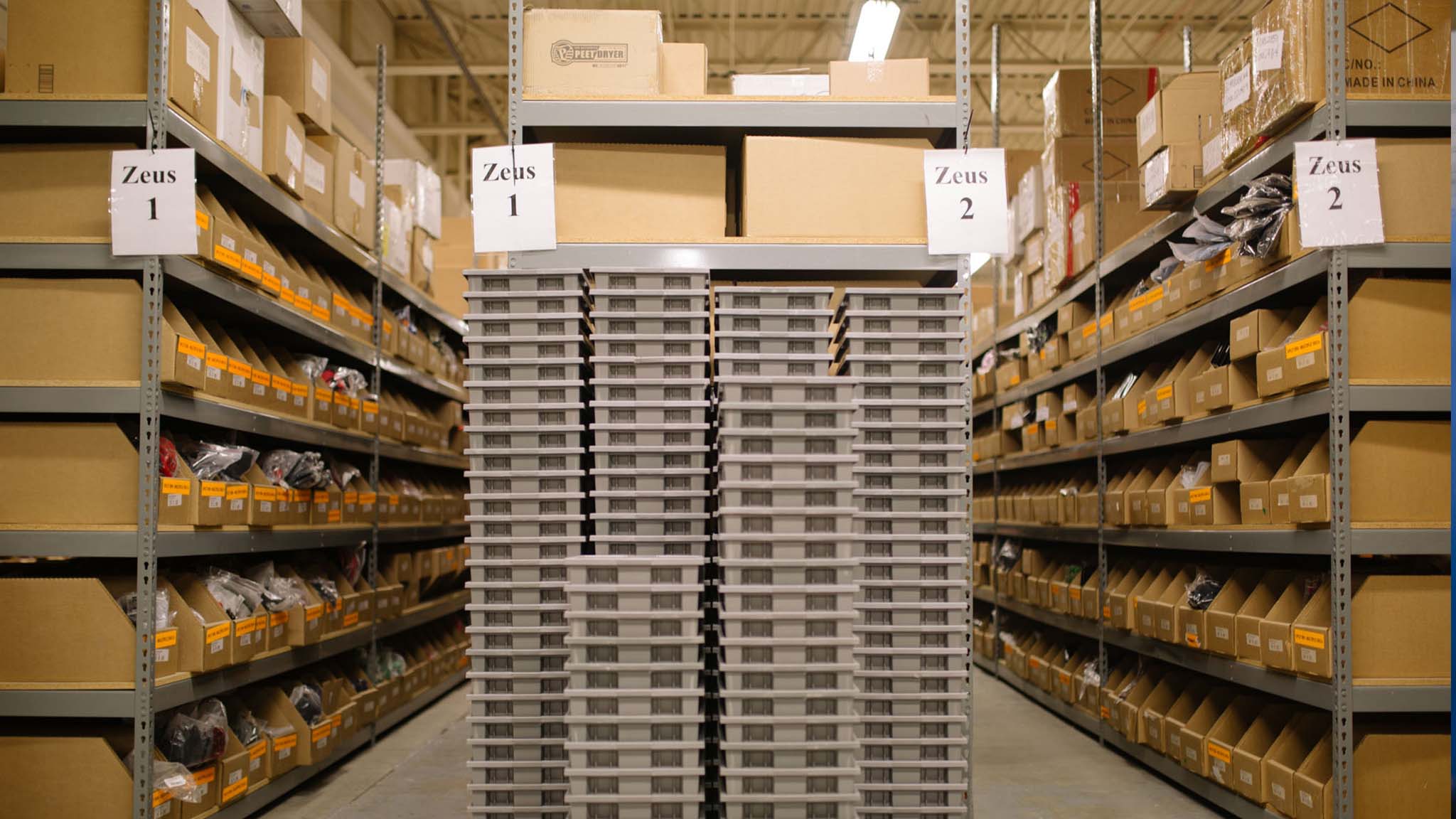
- Description: A flexible warehousing arrangement that allows you to scale your space needs up or down depending on demand.
- Pros: Flexibility and scalability, especially useful for seasonal businesses.
- Cons: Can be more expensive during peak times and might involve multiple providers.
Each of these fulfillment strategies carries its own set of benefits and challenges. Your choice will depend on various factors including the size of your business, your growth trajectory, the nature of your products, and your personal business goals.
Why the Right Choice Matters
Choosing the right fulfillment service is not merely an operational decision; it’s a strategic move that affects your customer satisfaction, your scalability, and ultimately, your bottom line. A seamless fulfillment process ensures that your customers receive their orders promptly and accurately, enhancing their trust and loyalty to your brand. On the other hand, inefficient fulfillment can lead to delayed shipments, errors, and a tarnished brand reputation. Therefore, investing time in understanding these services and carefully selecting the right fit is crucial for your business’s success.
In the following sections, we’ll further dissect how to approach this critical decision, examining costs, reliability, technological integration, and much more. Stay tuned as we unravel the complexities and guide you towards making an informed choice that propels your business forward!
The Importance of Choosing the Right Service

Ah, the pivotal moment in our journey! Understanding the weight of your decision in choosing a fulfillment service is like grasping the reins of your business’s future. Let’s delve into why this choice is so critical and the common hurdles you might encounter along the way.
A Fulfillment Service’s Impact on Your Business
The ripple effect of your fulfillment service choice touches every corner of your business. Here’s how:
Business Efficiency:
-
- Right Service: Streamlines operations, reduces errors, and saves time and money by optimizing inventory management and shipping processes.
- Wrong Service: Leads to logistical nightmares, unnecessary costs due to inefficiencies, and wasted time correcting errors.
Customer Satisfaction:
-
- Right Service: Ensures fast, accurate deliveries and high-quality customer service, leading to repeat purchases and positive reviews.
- Wrong Service: Results in delayed shipments, incorrect orders, and damaged goods, all of which can damage your brand’s reputation and deter customers.
Overall Growth:
-
- Right Service: Facilitates scalability and adaptation to market changes, supports expansion into new markets, and enhances competitive edge.
- Wrong Service: Hinders growth due to the inability to handle increased order volumes or expand efficiently, ultimately capping your business potential.
In essence, the right fulfillment service acts as a growth catalyst, propelling efficiency, customer loyalty, and scalability. In contrast, the wrong choice can be a significant roadblock to your success.
Common Challenges
Navigating the world of fulfillment services is no small feat. Here are some common challenges businesses face, along with insights on how to tackle them:

Scaling Difficulties:
-
- Challenge: As your business grows, your fulfillment needs become more complex. Scaling in-house operations or switching services can be daunting.
- Solution: Look for scalable solutions and services that can grow with your business, and plan for future needs from the outset.

Cost Management:
-
- Challenge: Balancing cost-effectiveness with quality service is tricky. Hidden fees and fluctuating costs can impact your bottom line.
- Solution: Thoroughly research and compare services, understand their fee structures, and consider long-term cost implications.
Technological Integration:
-
- Challenge: Integrating new fulfillment services with your existing systems (like e-commerce platforms or inventory management) can be complex.
- Solution: Prioritize services that offer seamless integration or assistance with setup and ensure they are compatible with your current technology.
Quality Control:
-
- Challenge: Maintaining product quality and packaging standards can be challenging, especially with third-party services.
- Solution: Establish clear quality guidelines with your provider and regularly monitor performance and customer feedback.

International Shipping:
-
- Challenge: Expanding into international markets involves complex shipping logistics, including customs, duties, and varying delivery standards.
- Solution: Choose a fulfillment service experienced in international shipping and understand the regulations and costs involved.
By acknowledging and preparing for these challenges, you can make a more informed and effective decision for your fulfillment needs. In the next section, we will guide you through a comprehensive approach to selecting the right service, considering all these factors and more, to ensure your business thrives in the dynamic world of e-commerce.
Comprehensive Guide to Selecting a Fulfillment Service
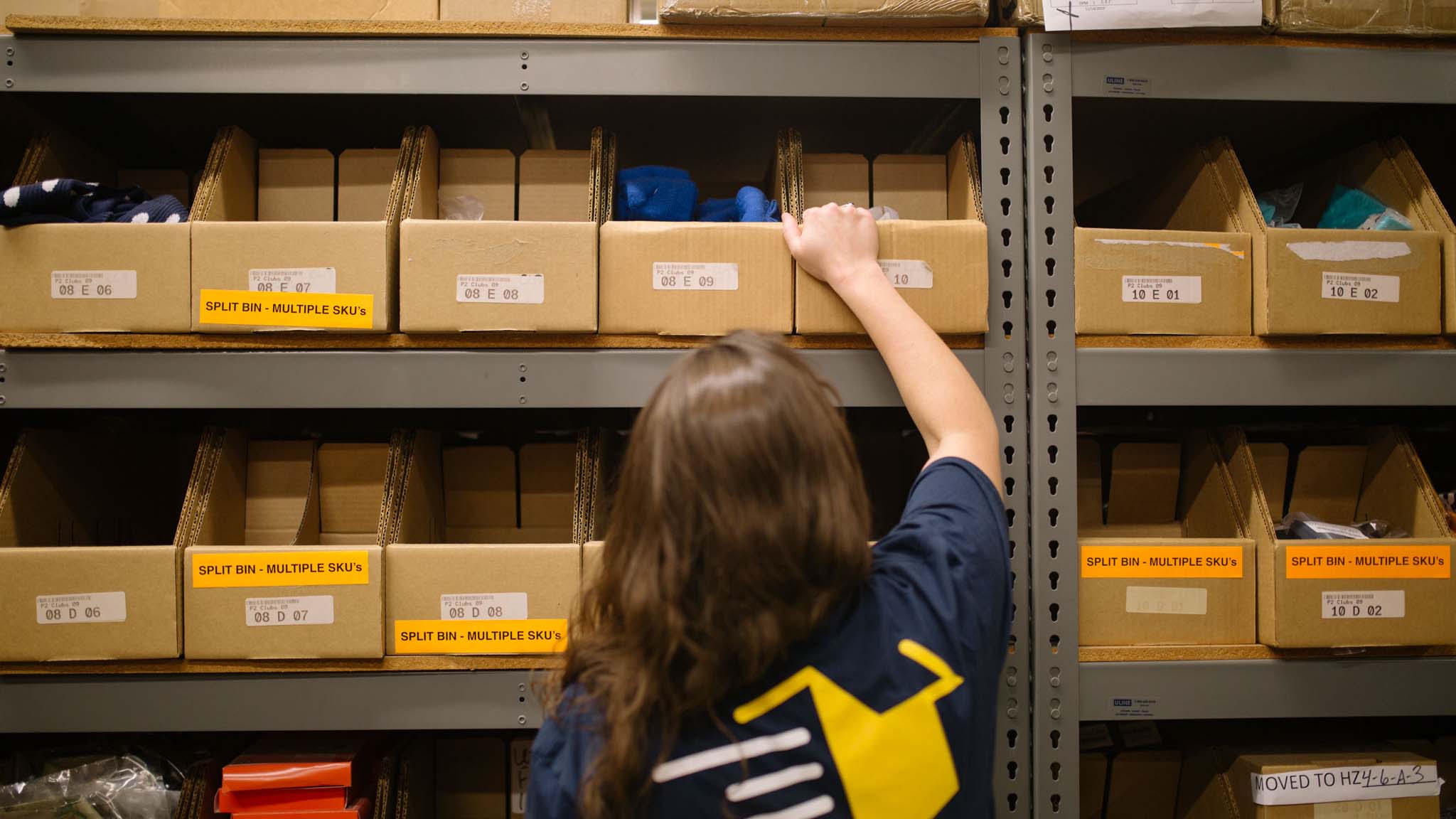
Navigating the labyrinth of fulfillment services requires a keen eye and a clear strategy. Here’s a comprehensive guide that will illuminate your path to selecting the service that aligns perfectly with your business’s unique needs and aspirations.
A. Cost Considerations
The price tag of a fulfillment service encompasses more than just the per-package cost. Here’s a breakdown to help you evaluate the total cost of fulfillment:

- Storage Fees:
- Understand how storage fees are calculated: by pallet, shelf space, or bin.
- Consider the cost variations based on volume and time, especially for seasonal businesses.
- Pick and Pack Fees:
- Assess the charges per item picked and the packaging costs.
- Factor in the costs for custom packaging if your brand requires a unique unboxing experience.
- Shipping Rates:
- Compare the shipping rates offered by different services, considering both domestic and international shipping.
- Investigate bulk shipping discounts or negotiated rates that the service might offer.
- Account Setup and Management Fees:
- Some services might charge for setting up your account or ongoing account management.
- Clarify all administrative fees upfront to avoid unexpected costs.
- Additional Costs:
- Be wary of hidden costs like return processing fees, stock removal charges, or long-term storage fees.
- Always read the fine print and ask questions to fully understand the fee structure.
By meticulously dissecting each cost component, you can make a cost-effective choice that doesn’t compromise on quality or efficiency.
B. Reliability and Scalability
A fulfillment service should be a steadfast ally in your business journey, capable of adapting to your growing needs. Here’s how to assess these crucial aspects:

- Track Record:
- Research the service’s history and reputation. Look for customer testimonials and case studies.
- Pay attention to their record in handling peak times like holiday seasons.
- Scalability:
- Ensure the service can handle your current volume and grow with you, whether you’re scaling up or down.
- Discuss their capacity for sudden spikes in orders or expansion into new markets.
- Disaster Recovery:
- Inquire about their contingency plans for unforeseen events like natural disasters or system failures.
- A reliable service should have robust measures in place to protect your inventory and ensure continuity.
C. Integration with Business Systems
Smooth integration with your existing business systems is vital for maintaining a seamless operation. Here’s what to consider:

- Compatibility:
- Check if the fulfillment service integrates with your e-commerce platform, inventory management, and other critical systems.
- Ensure that the integration is not only possible but also straightforward and efficient.
- Data Exchange:
- The service should facilitate real-time data exchange, allowing you to monitor inventory levels, track shipments, and analyze order data.
- Robust integration means more accurate forecasting and better decision-making.
- Support and Updates:
- Evaluate the level of technical support offered and the frequency of updates to their integration capabilities.
- Choose a service that is committed to evolving and improving its integration features.
D. Customer Service and Return Policies
Exceptional customer service and a fair return policy are the hallmarks of a top-notch fulfillment service. They directly impact customer satisfaction and loyalty.

- Customer Service:
- Assess the service’s responsiveness and support channels. They should be quick to resolve issues and provide clear communication.
- Consider services that offer extended support hours or dedicated account managers.
- Return Policy:
- Understand the process for returns and exchanges. It should be straightforward for both you and your customers.
- Evaluate the cost implications of returns and whether the service offers any return management solutions.
- Feedback Loop:
- A good service will provide insights and feedback on returned items, helping you address any recurring issues.
- Look for services that assist in maintaining customer satisfaction throughout the return process.
Selecting the right fulfillment service is a balancing act of cost, reliability, integration, and customer service. By considering each of these factors with the due diligence they deserve, you’ll be well on your way to forging a fruitful partnership that elevates your business and delights your customers. In the next sections, we’ll dive into real-world applications and further insights to make your decision even more informed and impactful. Keep reading, as the journey to operational excellence is just getting started!
Are You Ready for a Fulfillment Service?
Are fulfillment services the key to scaling your business efficiently? Use this simple quiz to find out! Score each of the following eight questions from 1 to 5 (where 1 = Strongly Disagree, 5 = Strongly Agree) to evaluate if a fulfillment service might be a good choice for your company.
Interested in Simplifying your Fulfillment?
Contact us and we’ll tell you how we can improve your fulfillment experience with a 3PL fulfillment service.
Common Misconceptions and Myths When Choosing a Fulfillment Service
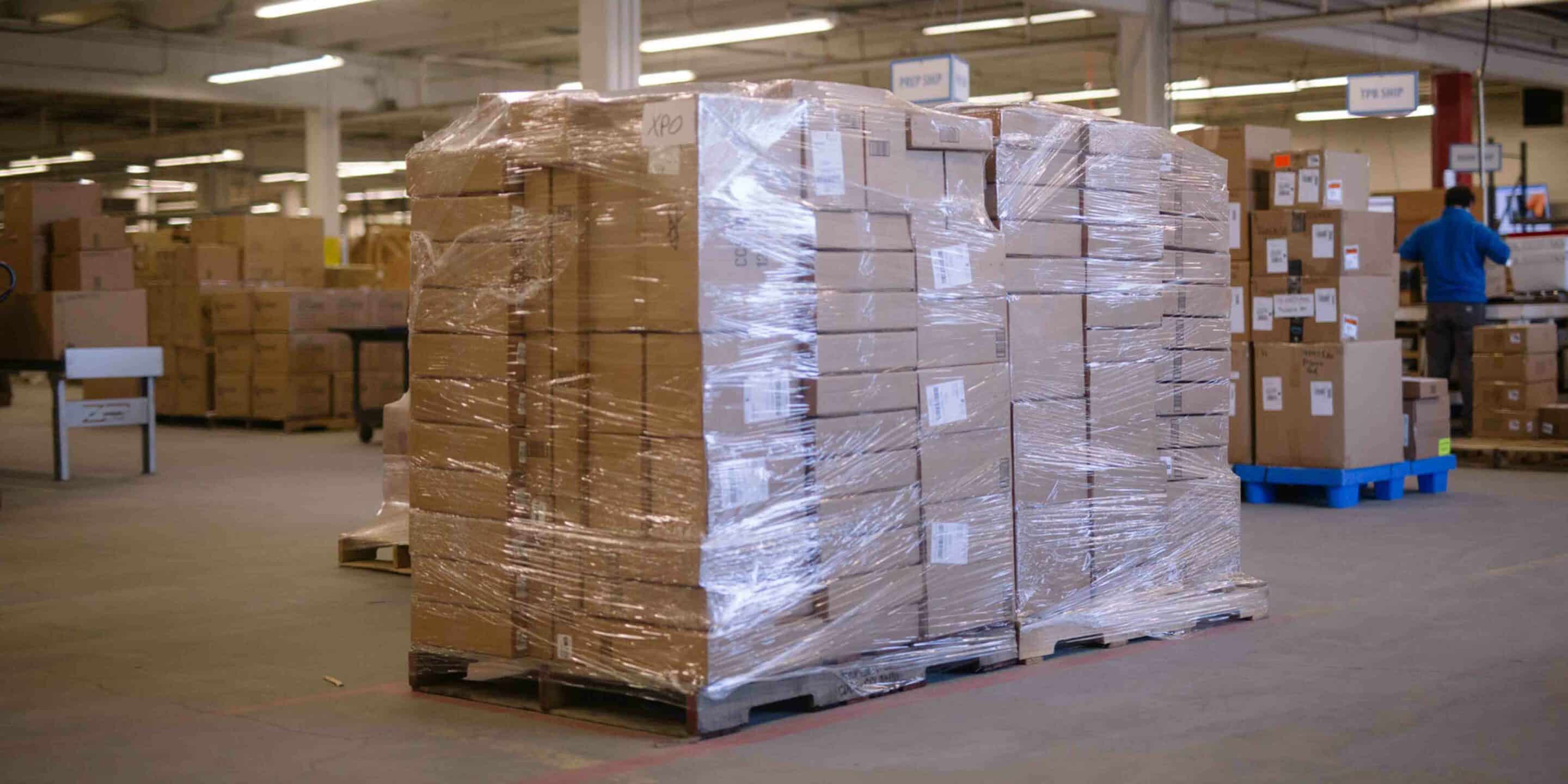
In the world of fulfillment services, myths and missteps can divert even the most diligent business owners from the path to success. Let’s debunk some common misconceptions and highlight mistakes to avoid, ensuring your journey toward choosing a fulfillment service is as smooth and informed as possible.
Common Myths About Fulfillment Services
“One Size Fits All” Approach:
-
- Myth: Any fulfillment service can suit any business.
- Reality: Fulfillment needs vary greatly depending on product type, business size, customer base, and more. Customization and fit are key.
Cost is the Only Factor:
-
- Myth: The cheapest option is the best option.
- Reality: While cost is important, factors like reliability, scalability, communication, and integration are equally crucial. A balance of value and service is essential.
Set It and Forget It:
-
- Myth: Once you choose a service, no further attention is needed.
- Reality: Ongoing monitoring, analysis, and communication with your provider are necessary to ensure continued efficiency and to make adjustments as your business evolves.
Technology Isn’t a Priority:
-
- Myth: The technological capabilities of a fulfillment service aren’t a top concern.
- Reality: Robust technology for integration, inventory management, and data analysis is critical for efficiency and informed decision-making.
Fulfillment is Just Shipping:
-
- Myth: Fulfillment services are only responsible for shipping products.
- Reality: Fulfillment encompasses the entire supply chain, including inventory management, order processing, packaging, shipping, and handling returns.
Fulfill Orders Effortlessly!
Summary – Choosing a Fulfillment Service: eCommerce Sellers Guide
In this comprehensive guide, we’ve journeyed through the critical aspects of choosing the right fulfillment service for your business, a decision pivotal to customer satisfaction and operational efficiency. Here are the key takeaways from our exploration:
- Understanding the Need: Recognizing the importance of fulfillment services in the e-commerce landscape is crucial. The right service acts as a silent partner, enhancing your operational capabilities and customer satisfaction.
II. Understanding Fulfillment Services
- Defining Fulfillment Services: These are the processes involved from receiving an order to delivering it to the customer’s doorstep. It includes inventory storage, order processing, packing, shipping, and handling returns.
- Types of Services: We examined the pros and cons of in-house fulfillment, third-party logistics (3PL), drop-shipping, and on-demand warehousing. Your business’s size, growth trajectory, and product nature play a significant role in determining the best fit.
III. The Importance of Choosing the Right Service
- Impact on Business: The choice between the right and wrong fulfillment service can significantly affect your business efficiency, customer satisfaction, and overall growth.
- Common Challenges: We discussed scaling difficulties, cost management, technological integration, quality control, and international shipping as common hurdles in fulfillment service selection.
IV. Comprehensive Guide to Selecting a Fulfillment Service
- Cost Considerations: Delve into a detailed analysis of the various costs associated with fulfillment services, from storage fees to shipping rates and additional costs.
- Reliability and Scalability: It’s crucial to assess the track record, scalability, and disaster recovery plans of a service.
- Integration with Business Systems: Ensuring compatibility with your current business systems is vital for a seamless operation.
- Customer Service and Return Policies: The way a service handles customer interactions and returns can significantly impact your brand reputation and customer loyalty.
Your Next Steps
Ready to embark on a journey toward streamlined logistics and enhanced growth? Reach out to eFulfillment Service for a bespoke fulfillment solution. We specialize in helping business like yours navigate the complexities of order fulfillment with ease and efficiency. Here’s what we offer:
- A Free Quote: CONTACT US TODAY to get a free quote and learn how our services can be customized to your unique business needs.
- Proven Track Record: Our commitment to excellence is reflected in the TESTIMONIALS FROM NUMEROUS SATISFIED CLIENTS.
- Tailored Solutions: We understand that each startup has its unique challenges, and we’re here to offer solutions that fit perfectly with your business model.
Let eFulfillment Service be your partner in transforming your fulfillment process, enhancing your customer experience, and catapulting your business to new heights.
Simplify Ecommerce with a Fulfillment Service!
FAQs: Choosing a Fulfillment Service
Does fulfillment status mean delivered?
No, fulfillment status does not necessarily mean delivered. It refers to the various stages an order goes through in the logistics and delivery chain. While "delivered" is one of the possible statuses indicating that the order has reached the customer, other statuses like "shipped" or "processing" are also part of the fulfillment process and do not imply delivery.
What does it mean when status is fulfilled?
When an order's status is "fulfilled," it means that all items in the order have been shipped to the customer. It indicates that the seller or fulfillment center has completed the process of preparing, packing, and dispatching all items in the order. The order is now on its way or may have already reached the customer.
What does it mean when fulfillment status is unfulfilled?
An unfulfilled status means that the order has been placed but none of the items have been shipped yet. The order is still being processed, or perhaps awaiting inventory or payment confirmation, and has not entered the shipping phase. It's essentially in the initial stages of the fulfillment process.
How long does waiting for fulfillment take?
The time an order spends in "waiting for fulfillment" status varies greatly depending on several factors including the seller's processing time, product availability, and the efficiency of the fulfillment service. Typically, it can take anywhere from a few hours to several days. It's always a good idea to check with the specific seller or fulfillment provider for more accurate timelines.
What is the difference between fulfillment and delivery?
Fulfillment refers to the entire process of handling an order, from the moment it's placed until it's ready to be shipped, including picking, packing, and preparing for dispatch. Delivery, on the other hand, specifically refers to the process of transporting the fulfilled order to the customer's address. In essence, fulfillment is about getting the order ready for dispatch, while delivery is about getting the dispatched order to the customer.
Does unfulfilled mean not shipped?
Yes, unfulfilled generally means not shipped. When an order status is unfulfilled, it indicates that the order is still being processed and has not yet been dispatched or handed over to the delivery service. The items are likely still in the warehouse or awaiting other processing steps before shipping.



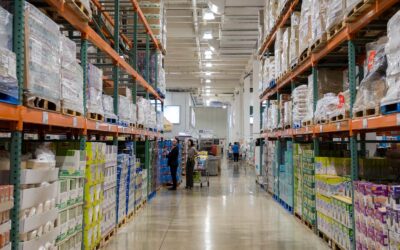


0 Comments